'What my terminal cancer diagnosis taught me about life'
- Published
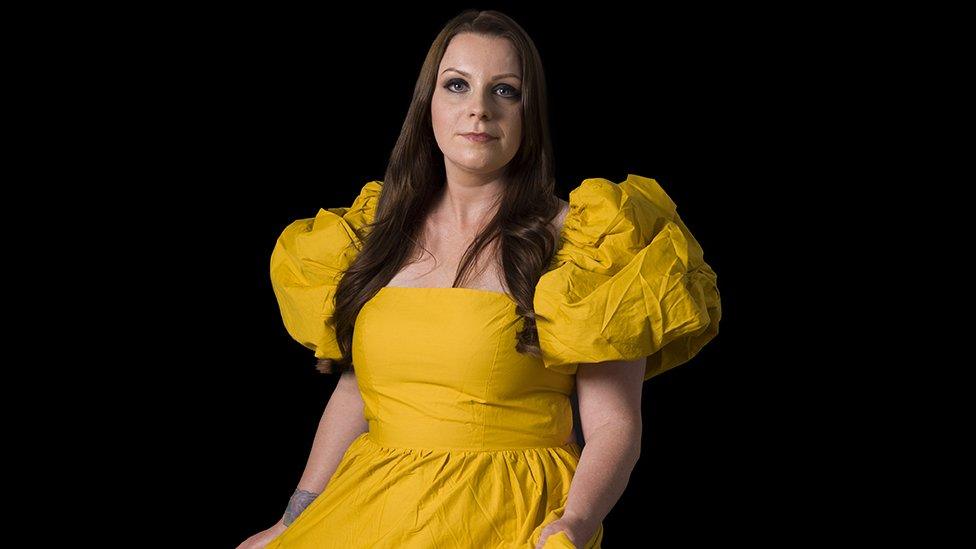
Megan, 30, says since being told she is terminally ill she has placed more value on spending time with those she loves
Forget striving for a bigger home and a better car. Slow down, be grateful for what you have and take time with the people you love.
This is the advice from Megan McClay, 30, who is living with terminal cancer.
Eighteen months ago she was told her ocular melanoma, external had advanced to stage four, spread to her liver and she had an estimated two years to live.
"I'm able to have a perspective on what is important to me that I didn't have before," she said.
"I value spending time with my family, being with my partner more, being more present with myself."
Megan's story is one of several being told at 'What matters most?', external, an exhibition at Senedd Oriel at the Senedd, or Welsh Parliament in Cardiff Bay.
Through photographs and short films the exhibition shares the perspectives of people with terminal illnesses, their families and those who work in palliative care.
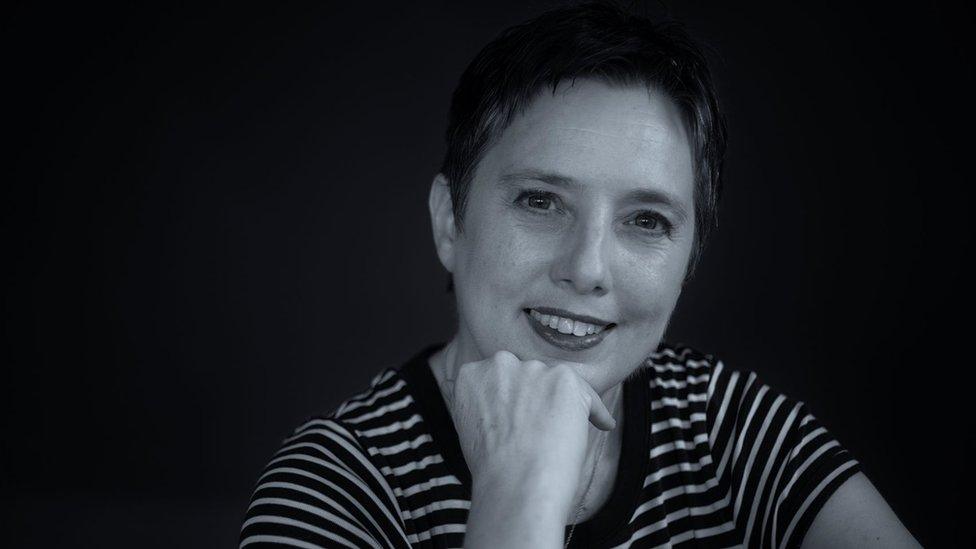
"All too often people just want to turn away and not discuss it and yet if we don't discuss it nothing will change," says Ceridwen Hughes
It is a very personal project for the photographer and filmmaker behind the exhibition, Ceridwen Hughes, who wanted to explore the topic in response to her mother's death.
Her 81-year-old mother had cancer and chose to die at home, but Ceridwen and her siblings found a lack of joined-up care and information meant they were unable to give her the support she needed.
"My mum was really going through the dying part on her own because we were all on the phones trying to get people to come out to see her," she said.
"The whole experience was so traumatic... she died in unbearable pain."
She hopes the exhibition will prompt more conversations about end-of-life care and influence policymakers to give it more investment.
"All too often people just want to turn away and not discuss it and yet if we don't discuss it nothing will change," said Ceridwen, who is from Mold, Flintshire.
"It needs to be an everyday conversation, just like birth is."
'I was naive, very naive'
Megan, from Wymondham in Norfolk, was 26 when she began experiencing a small flashing light in the corner of her eye.
She ignored it for about two weeks thinking it might be a migraine, but then rang an optician who advised her to go to A&E.
She was then referred to a specialist and eventually diagnosed with ocular melanoma, external, a type of eye cancer that occurs when the pigment-producing cells in the eyes divide and multiply too rapidly.
"In the very beginning I didn't understand the severity of the diagnosis at all," said Megan.
"Of course, I knew that a cancer diagnosis is bad, but when you look at the tumour it's a size of millimetres, it's tiny.
"In my mind I imagined you can treat it and move on unscathed. I was naive, very naive."
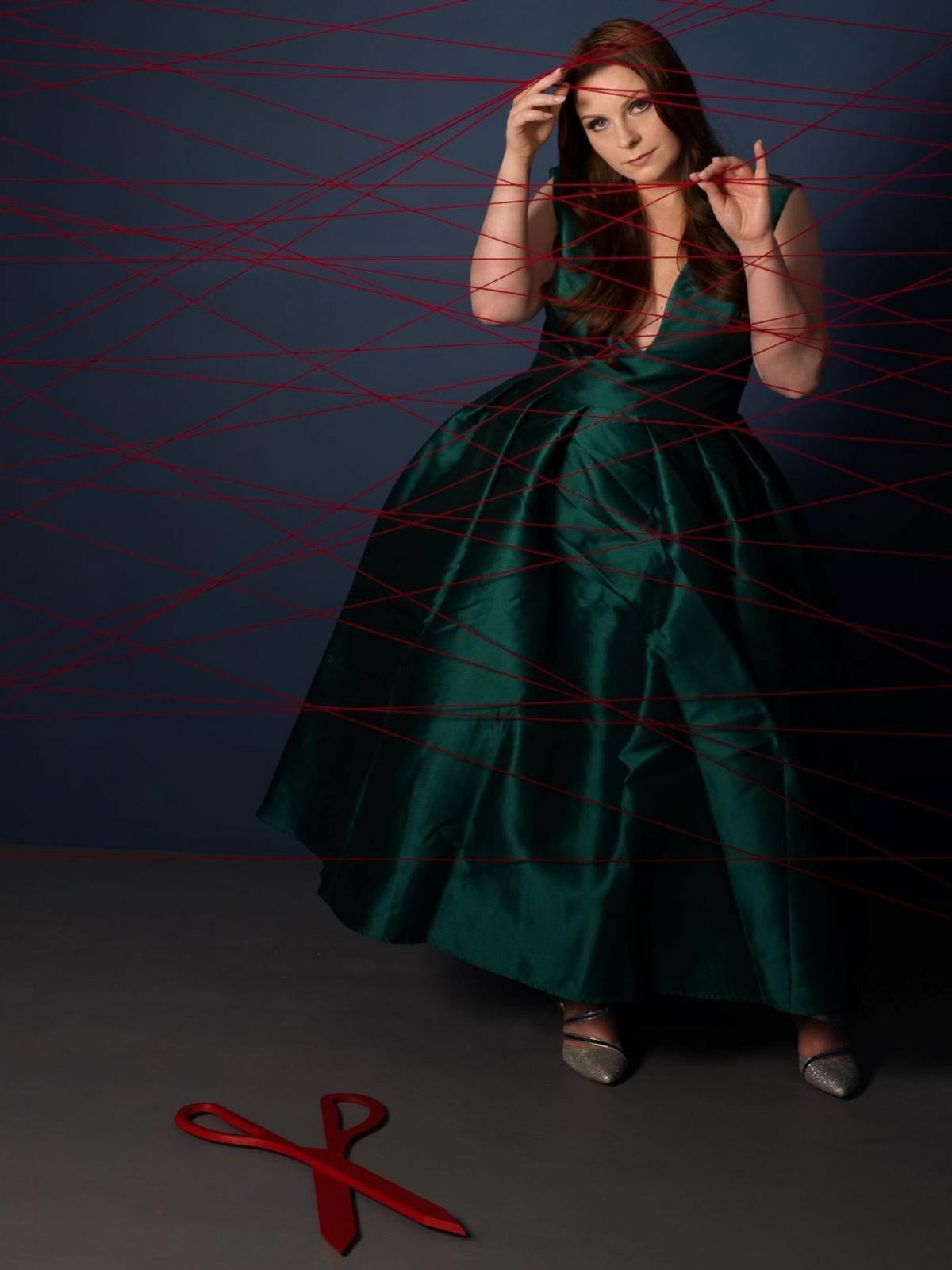
Megan has ocular melanoma, a type of eye cancer, that has spread to her liver
Eighteen months ago Megan was given the devastating news that the cancer had spread to her liver and she had an estimated two years to live.
"I think it is difficult for people because I don't look unwell," she said.
"Sometimes I feel like it's not actually happening to me, it's kind of surreal."
She is currently having a type of immunotherapy which is unable to cure the cancer but aims to control it for as long as possible.
She is also planning for the end of her life with her local hospice.
"Two years is always very loud in my mind, it's very difficult to move forward from that regardless of how great the treatments are becoming," she said.
Conversations with the hospice have been some of the hardest imaginable but for Megan it has been reassuring to know a support system is in place, not just for her but also for her partner and family.
"For me, knowing that everything is organised, and knowing what's going to happen, helps me to not think about it so much any more, I can push it away a little bit," she said.
Megan is able to talk about how she would like her final days to be managed but knows it remains a difficult topic for those who love her.
"You do need to have realistic expectations of people... just because I may be comfortable talking about it doesn't mean my partner or mum or dad are comfortable talking about it," she said.
"You have to adapt to other people because they're grieving for the life they thought I was going to have as well as knowing they will have to eventually grieve for me not being here. It's very complex."
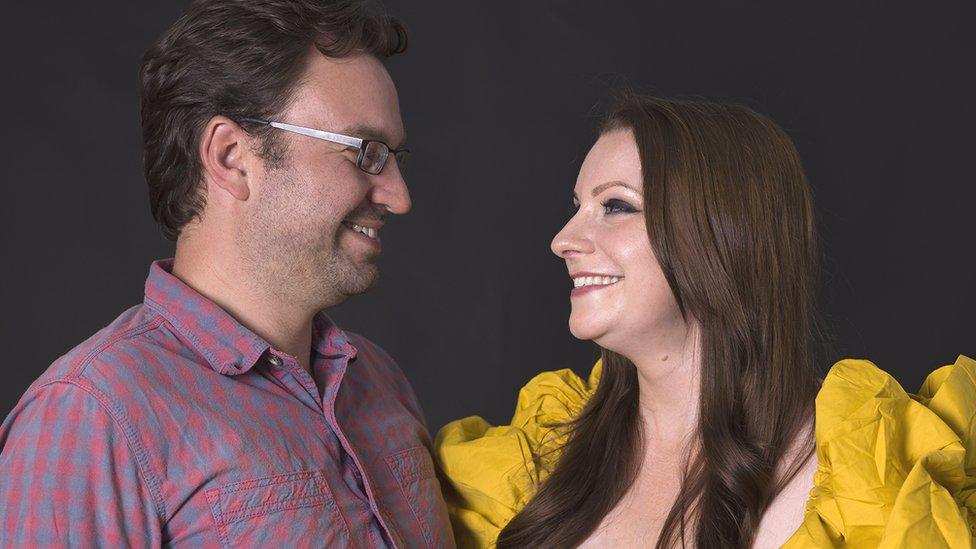
Megan, here with her partner Dimitar Kashchiev, says it can be difficult for people to understand her illness because she doesn't look unwell
Megan and her partner Dimitar Kashchiev met in 2018. Less than a year into their relationship Megan was diagnosed with first stage ocular melanoma before being told it was terminal about 12 months later.
"It almost felt like a punch in the gut because we were in a position where things were stabilising and we were considering and planning for the future," said Dimitar.
"Then all of sudden you're thinking 'but she has no future now'."
Over time he has been able to open up about his feelings which has led to him finding new perspectives, slowing down and prioritising quality time together.
"Instead of always doing what I thought was the helpful thing and taking action, being away and working, I've now calmed down significantly," he said.
"Me and Megan are able to have as much meaning within our time together as possible because we won't have that time in the future."
Dimitar has been keeping written notes and recording voice notes about day-to-day life with Megan, knowing one day those memories may bring him comfort.
He is "not anywhere near a stage of acceptance" about the future but getting "better at thinking about it a little bit".
"Sometimes when I do think about a future without Megan it feels like I'm betraying us," he said.
Megan has been considering how she would like to be remembered.
"I want to be remembered when life becomes a huge rush, and things become too quick, and you're jumping careers, and you've got children running around," she said.
"I want to remind people to stop and pause, put the phone down and take time with the people around you.
"I feel like we're always striving for more, a bigger home, a bigger car, a bigger this and a bigger that but we forget to see what we actually have in front of us...
"I want to be a reminder of what we have."
The exhibition 'What matters most?' is a collaboration between not for profit organisation Same But Different, end of life charities Marie Curie and Hospice UK and supported by the National Lottery Community Fund and is at Senedd Oriel until 15 February.
Related topics
- Published15 January 2023
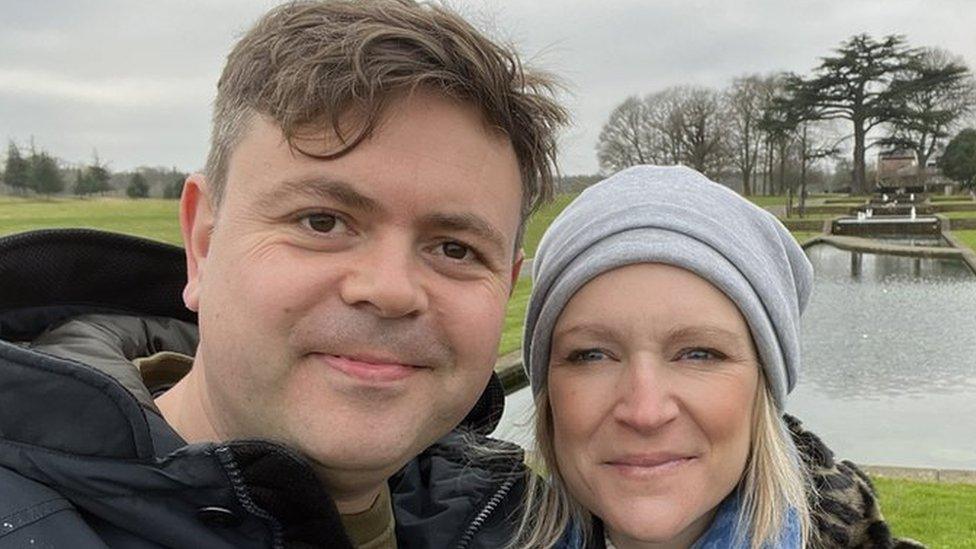
- Published30 April 2023
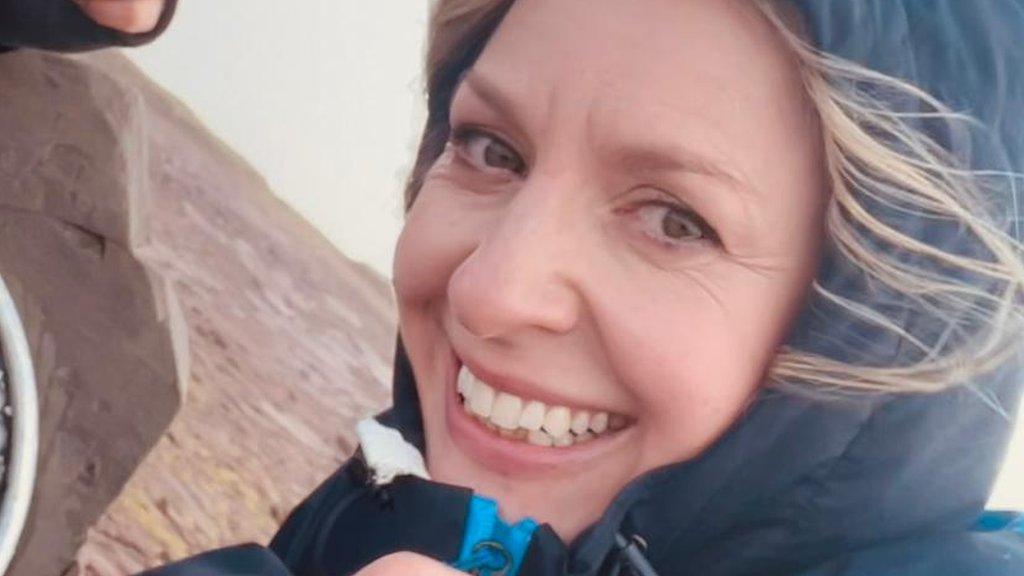
- Published21 January 2024
